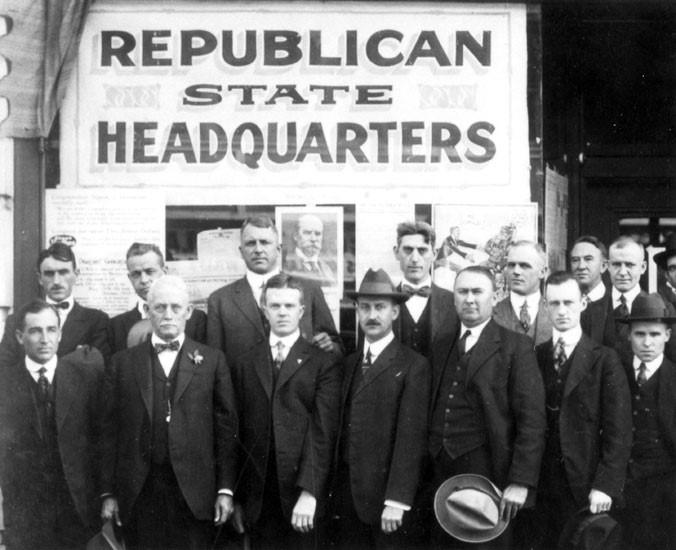What’s in it for me?
Bedrosian Faculty Research Award: In the Face of Failure: The Persistence of Pro-Social Motivations under Conditions of Negative Feedback, Awarded January 2015
__________________________
What motivates individuals to not only work hard but to go above and beyond their job requirements when working for organizations that deliver social goods?
This is the question that prompts some of my and colleagues’ most recent research. We think that this is an important topic to study for not only public management but for its policy implications as well. Think of the teacher spending money out of his own pocket for classroom materials, the police officer spending unpaid hours helping an at-risk teen who lives in her jurisdiction, the social worker who drives his client to a job interview, or the nurse who spends her day off of work to check in on her patients. Although they seldom make daily headlines, there are countless people performing incredible acts of self-sacrifice and public service every day.
While Americans bemoan the faceless bureaucrat, they tend to view their actual encounters with public servants positively.[1] Moreover, numerous volunteers and employees of non-governmental organizations (NGOs) with social missions add to this population of selfless and service-driven professionals and laypersons going above and beyond their delineated job requirements. This is not to imply that all public servants or nonprofit employees are selfless altruists. Indeed, many are not. Many are there to work simply for the paycheck, the job security, or the benefits… what Anthony Downs (1967) referred to as “slackers” (meeting the minimal job expectations) or “conservers” (risk-averse employees focused on their own job security) in his typology of bureaucratic personalities. Others are there for the power (“climbers”) or they are fanatical advocates for the narrow policy interests of their organization (“zealots”). But, many are motivated to careers in the public or nonprofit organizations because they find intrinsic benefits in serving the public or in seeing through the general social missions of their organization (“statesmen”).
At the same time, performance management arrangements in the public and nonprofit sectors have proliferated over the last two decades with a predominant focus on holding “slackers” accountable. To make these employees accountable to their respective public missions, political superiors impose performance expectations through various forms of data collection and measurement. Teacher performance is judged on the improvements students evidence on standardized tests, police departments are evaluated on an array of crime statistics, healthcare organizations are increasingly subjected to production-oriented performance expectations, and federal agencies set a multitude of annual performance metrics to presumably align outputs with their strategic goals. However, these metrics and expectations will vary in terms of practicality and attainability. As such, negative performance feedback is quite likely… especially when more than one constituency or party or interest group cannot agree on the purpose or reasonableness of the outputs being measured.
In this type of environment—when constantly faced with the prospect of negative performance feedback—it is plausible that the motivations that have proven to attract Downsian “statesmen” to careers in public or nonprofit service (versus the private sector) will be diminished and self-interest might prevail. In other words, when a person is consistently subjected to negative feedback, a “statesman” might possibly turn into a “slacker.” There is well-established empirical evidence that individuals who are more prosocially motivated and identify with altruistic or social organizational missions are more likely to self-select into careers in the public or nonprofit sectors (e.g., Andersen, Jørgensen, Kjeldsen, Pedersen, & Vrangbæk, 2013; Perry, Hondeghem, & Wise, 2010). Yet, little to no evidence exists as to how durable those motivations might be in relation to altruistic work effort—especially in a context of negative feedback. In new experimental work sponsored by the Bedrosian Center for Governance Research, my colleagues and I are pursuing a rather straightforward research question: do employees put forth work effort increasingly toward their own self-interest (rather than the purposive goals of the organization) when faced with negative feedback?
For this experiment, we recruit workers from the United States from Amazon’s Mechanical Turk (MTurk). We use a “real-effort” experiment—an experimental approach that is common in economics (e.g., Tonin & Vlassopoulos, 2010)—to test these propositions. Subjects completed survey questions that measure prosocial motivation, self-determination, demographic information, and political ideology across three countries (the United States, the Netherlands, and Germany). We then provide a battery of organizational missions of international NGOs and ask subjects to rank the missions by salience and valence.
Subjects then perform a real-effort task for a set amount of time. The real-effort task is a Simple Reaction Time Task (SRTT). Once the subject has completed the SRTT, they are provided their performance. They are then offered the choice to repeat the SRTT or to submit their work to complete the entire task. If they choose to submit, they are remunerated for their participation. However, with the offer to repeat, the subject is randomly assigned one of the five previously ranked charities. The subject is prompted that they will be given additional money if the subject repeats the task and improves their performance to one of two randomly assigned performance expectations (one is moderate (50th percentile), and one is almost impossible (99th percentile)). If the subject fails to meet the expected performance, they are offered the choice to exit the survey or choose “play again.” Each time, the subjects are given the opportunity to choose what proportion of the bonus money benefits the charity in relation to one’s self. This is repeated to infinity, or until the subject achieves the expected performance or chooses to exit.
Expected results for this research are that subjects with high prosocial motivation will be more likely to repeat a real-effort exercise on behalf of a charity. At the same time, mission support will be an important predictor to work effort and the extent to which the proportion of reward will favor the charity (rather than one’s self). Finally, the more unrealistic it becomes to attain a given goal, the more a subject will choose to work in their own self-interest than on behalf of a charity. However, we believe this crowding-out effect will be attenuated by the subject’s intrinsic prosocial motivations.
The practical implications of this work are numerous. This study presents a novel contribution to the scholarship on public or nonprofit workforce development, in that recruitment and retention strategies for organizations should be informed by the relative strength of prosocial motivations in predicting altruistic work behaviors. We want people to work hard for a social good, but we should have a better grasp on exactly what is driving them to do it.
__________________________
References:
Andersen, L. B., Jørgensen, T. B., Kjeldsen, A. M., Pedersen, L. H., & Vrangbæk, K. (2013). Public Values and Public Service Motivation Conceptual and Empirical Relationships. The American Review of Public Administration, 43(3), 292-311.
Downs, A. (1967). Inside Bureaucracy. Boston: Little Brown.
Perry, J. L., Hondeghem, A., & Wise, L. R. (2010). Revisiting the motivational bases of public service: Twenty years of research and an agenda for the future. Public Administration Review, 70(5), 681-690.
Tonin, M., & Vlassopoulos, M. (2010). Disentangling the sources of pro-socially motivated effort: A field experiment. Journal of Public Economics, 94(11), 1086-1092.
[1] http://archive.federaltimes.com/article/20091116/AGENCY02/911160302/20-percent-Americans-hold-positive-view-government


